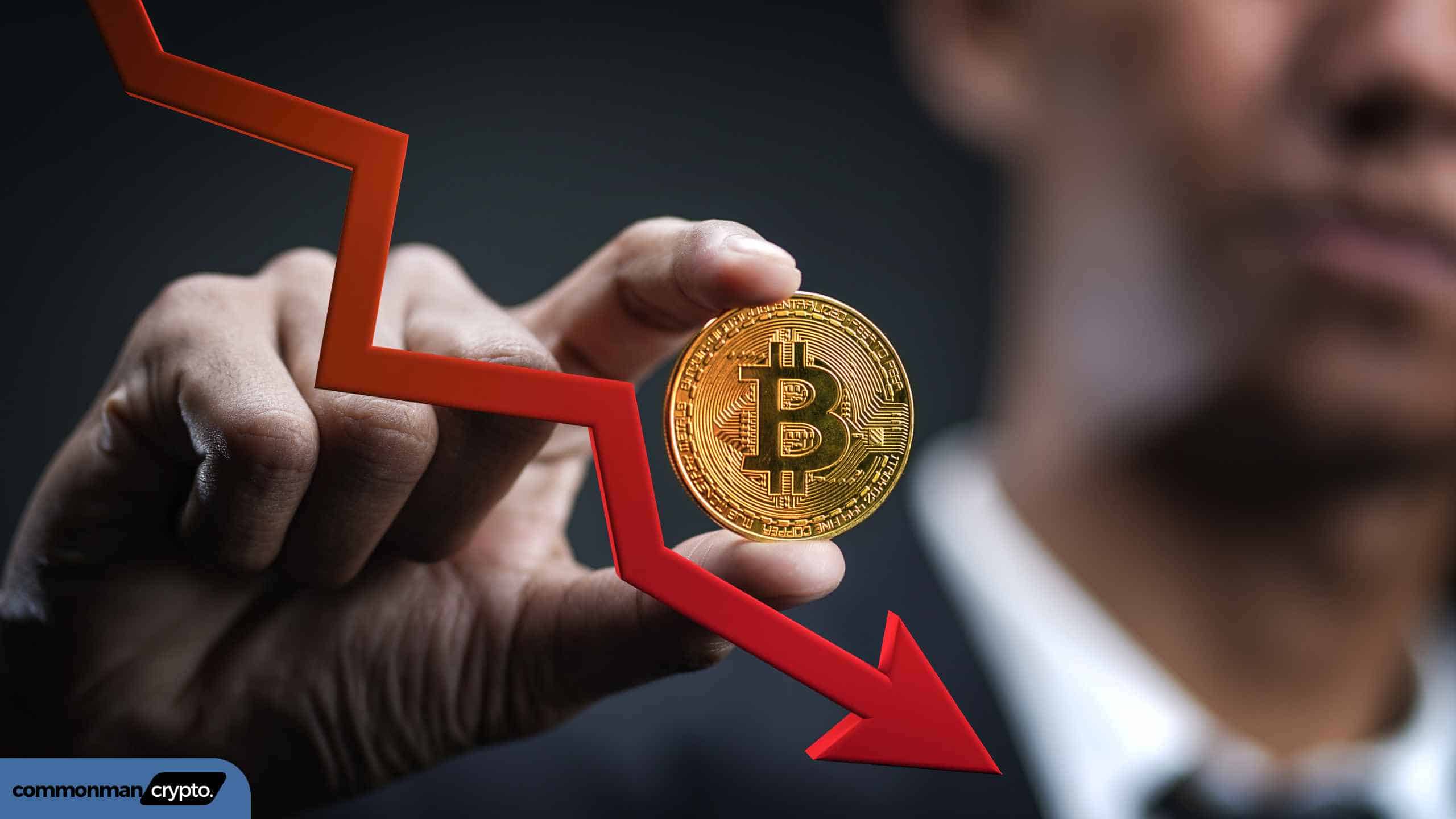Mt. Gox was an exchange based in Tokyo that was in operation between 2010 and its eventual demise in 2014. At its peak, the exchange handled 70% of all Bitcoin transactions in the world, which made it the world’s largest Bitcoin exchange of the time.
It was developed by Jed McCaleb as a platform to trade cards derived from The game “Magic: The Gathering,” hence the name “Magic: The Gathering Online Exchange” or Mt. Gox to shorten it. McCaleb was later able to sell the exchange Mark Karpeles in 2011.
The collapse of Mt. Gox began with a string of hacks that began in 2011 and resulted in the loss of around 850,000 Bitcoins valued at several hundred million dollars at the time. The exchange stopped trading, shut down its website, and applied with the bankruptcy court in January 2014. The subsequent investigations revealed that the majority of the stolen Bitcoins originated directly out of Mt. Gox’s hot bank account several years ago.
Recent developments have witnessed Mt. Gox’s administrators attempting to transfer any remaining capital to the creditors. On May 20, 2024, Gox shifted large amounts of Bitcoin, which was the first time this transfer had occurred in the past five years. The move has caused a flurry within the Bitcoin market, and prices initially dropped; however, they rebounded later. The current process of distribution of assets is closely observed by investors since it is likely to affect Bitcoin’s value and market liquidity.
Highlights
| Aspect | Summary |
|---|---|
| Mt. Gox Overview | Mt. Gox was a Tokyo-based Bitcoin exchange operational from 2010 to 2014. It handled 70% of global Bitcoin transactions at its peak. Developed by Jed McCaleb, later sold to Mark Karpeles in 2011. |
| Impact on Bitcoin Market | Immediate impact: Bitcoin price halved, loss of market confidence. Long-term impact: Increased regulations, security enhancements, Market maturity: Legal and financial repercussions followed. |
| Collapse Factors | Security breaches, mismanagement, regulatory issues. Hacks from 2011 resulted in continuous Bitcoin theft, poor security practices, and operational disarray. Regulatory problems worsened the situation. |
| Mt. Gox Bitcoin Dump | Resulted from the exchange’s bankruptcy. Security breaches led to losses, bankruptcy filing in 2014. Trustee Nobuaki Kobayashi liquidated assets to repay creditors, causing market volatility and price concerns. |
| Current Status of Creditors | Repayment delayed multiple times, with the most recent deadline set for October 31, 2024. Asset movements indicate preparations for repayments. Creditors to receive payments in cryptocurrency or fiat money. Market impact seen due to asset circulation. |
How did the Mt. Gox hack impact the Bitcoin market?
The Mt. Gox hack had a major influence on the Bitcoin market as well as the market in the short term and over the long term.

Immediate Impact.
- Price Fall The hack resulted in an extreme drop in the value of Bitcoin. Prior to the hack, Bitcoin was trading at approximately $850. Following the hack’s revelation, the price fell to about $400, losing over half its value over a short time.
- Market Confidence The hack has severely damaged confidence in the market. Mt. Gox was among the biggest Bitcoin exchanges in the world at the time, processing around 70 percent of all Bitcoin transactions around the world. The loss of 850,000 Bitcoins (worth approximately $450 million in the year at that time) shaken confidence in the safety of Bitcoin exchanges.
Long-term Impact
- Regulations and Examination The hack led to a rise in the level of scrutiny for cryptocurrency exchanges. Financial regulators and governments all over the world began to take a more detailed inspection of the workings of these exchanges. This led to stricter rules and surveillance.
- Security Enhancements The event brought to light the need for better security measures in the cryptocurrency sector. A number of exchanges have improved their security practices, such as the use of multi-signature wallets, cold storage, and more stringent auditing practices.
- Market Maturity: The Mt. Gox hack is frequently cited as a turning point that has led to the development of the Bitcoin market. It highlighted the risks that come with investing in cryptocurrency and resulted in the creation of a more secure infrastructure and services in the ecosystem.
Legal and Financial Repercussions
- Bankruptcy Proceedings: Mt. Gox declared bankruptcy back in 2014, and litigation has been going on for several years. Creditors have sought to recover the funds they lost, and this has included lengthy legal battles as well as the eventual restitution of a portion of the stolen Bitcoins.
- Compensation plans In recent times, there have been a number of efforts to compensate those affected by the attack. Different plans have been suggested and implemented to distribute recovered assets to affected users.
Overall, the Mt. Gox hack was an important moment in the development of Bitcoin, which led to major modifications in the way that the Bitcoin market operates and is managed.
What led to the collapse of Mt. Gox?
The demise of Mt. Gox, which was once the biggest Bitcoin exchange, was due to an array of factors that included security breaches, mismanagement, and issues with regulations.

Key Factors Leading to the Collapse
- Security Breaches and Hacks :
- Early Hacks: Mt. Gox was the victim of the first significant hacking incident in June of 2011 when hackers hacked into the computer of an auditor, changed the value of Bitcoin by one cent, and snatched around 2000 Bitcoins from customer accounts. This incident revealed significant weaknesses in the security of the exchange.
- Ongoing Theft The investigation found that the exchange was constantly targeted for theft from 2011. Hackers stole private keys, then gradually took Bitcoins out of cold and hot wallets over the course of several years. At the time when the fraud was discovered, about 850,000 Bitcoins had gone missing, estimated at around $460 million.
- Mismanagement and Operational Issues :
- Poor Security Practices The exchange was not equipped with adequate security measures, including private keys that were not encrypted and the absence of software for controlling versions, which permitted unauthorized access to funds and their manipulation.
- Disorganized Operations: Mt. Gox was beset by internal chaos along with poor oversight. Just the chief executive, Mark Karpeles, could make changes to the website’s source code, which led to delays in the implementation of critical security updates.
- Regulatory Problems The exchange was confronted with legal hurdles, including an action from Coinlab to be held accountable for a breach of contract, as well as an investigation conducted by the US Department of Homeland Security for operating without having a license. The issues resulted in the confiscation of funds worth $5 million from the company’s US bank accounts, which added to the strain on the business’s operations.
- Customer Withdrawal Issues :
- Suspension of Withdrawals The news broke in early 2014 when Mt. Gox was forced to stop all Bitcoin withdrawals due to an issue with the Bitcoin software that was referred to as “transaction malleability.” This vulnerability allegedly enabled users to change the ID of their transactions, which caused confusion as to the authenticity of transactions. The suspension triggered a rise in complaints from customers as well as a decline in confidence at the exchange.
- Insolvency and Bankruptcy: By February 2014, Mt. Gox was declared insolvent. The exchange halted trading, and its website was shut down. It also applied for the protection of bankruptcy in Japan and the US. The company was reported to have lost 744,408 Bitcoins that belonged to customers and the equivalent of 100,000 belonging to its customers, which is approximately 7% of all Bitcoins that existed at the time.
Aftermath and Impact
The demise of Mt. Gox had a major impact on the cryptocurrency market. The incident led to greater monitoring and oversight of cryptocurrency exchanges, which highlighted the need for improved security practices and transparency in operations. It also provided a cautionary story for investors on the dangers that come with centralized exchanges, as well as the importance of protecting digital assets.
Overall, The collapse of Mt. Gox was mostly due to a number of security breaches, inadequate management, as well as regulatory problems that ultimately caused the company’s insolvency and, eventually, bankruptcy.
What caused the Mt. Gox Bitcoin dump?
The Mt. Gox Bitcoin dump was primarily due to the liquidation process after an exchange’s failure.

The main causes that caused this incident:
Background and Bankruptcy
- Hacks and Losses: Mt. Gox was, at one time, the largest Bitcoin exchange, experienced numerous security breaches between the years 2011 between 2011 and 2014, resulting in the loss of 850,000 Bitcoins. The losses were blamed on fraud, theft, and poor management.
- Bankruptcy Filing: In February 2014, Tokyo granted bankruptcy protection to Mt. Gox in response to losses of large quantities of bitcoins. This resulted in the end of trading as well as, eventually, the closure of the exchange.
Liquidation and Repayment Process
- Trustee’s Role: Nobuaki Kobayashi, the trustee in charge of the bankruptcy, was charged with liquidating the remaining assets to pay the creditors. This involved selling huge quantities of Bitcoin owned by Mt. Gox.
- Massive Transfers In May 2024, large transactions from Bitcoin of Bitcoin Mt. Gox wallets were disclosed. The transfers, which totaled billions of dollars, were an ongoing effort to pay back creditors.
Market Impact
- Market Volatility The large-scale de-liquidation of Bitcoin by the Mt. Gox trustee has caused market volatility. The anticipation and the execution of these transactions led to fears about the negative impact on Bitcoin prices.
- Creditor Repayments A: The procedure of remunerating creditors, which involved selling large quantities of Bitcoin and other Bitcoin, led to market instability. However, some large creditors did not seem to be affected and suggested that the market may be able to absorb the effects more than anticipated.
In short, in the end, the Mt. Gox Bitcoin dump was driven by the necessity of liquidating assets to pay creditors after the bankruptcy of the exchange. The process involved significant transfer and sale of Bitcoin, which led to market volatility and worries regarding the effect on Bitcoin prices.
What is the current status of Mt. Gox’s creditors?
As of May 2024, Mt. Gox’s debtors are in the process of repaying them, but the timeframe has been impacted by numerous delays.

Most important facts concerning the present situation:
- Repayment Timeline :
- The deadline for repaying was delayed at diverse times. The most recent time, in September 2023, was extended for 12 months until October 31, 2024.
- Despite this, however, the trustee has stated that repayment preparations are being made, and distributions are scheduled to be made within the next year.
- Asset Movements :
- On May 28, 2024, Mt. Gox transferred approximately $9.8 billion of Bitcoin to a single account as part of preparing for repayments to creditors. This was the first major move in the movement of Bitcoin out of Mt. Gox’s wallets for five years.
- In the aftermath, about $400,000 worth of Bitcoin was transferred to a couple of new addresses. The wallet was left with around $9.4 billion worth of Bitcoin.
- Distribution Details :
- The creditor has a choice of receiving payment through either cryptocurrency (Bitcoin or Bitcoin Cash) or fiat money. Although payments in fiat currency have been in place for a while, no Bitcoin or Bitcoin Cash cash transactions have been made yet.
- The trustee has assured the public that Bitcoin Cash and Bitcoin, as well as Bitcoin Cash, are being managed safely and securely, and the process of distribution is on track.
- Market Impact :
- The circulation of such a huge quantity of Bitcoin has led to some market movements. Bitcoin prices fell slightly because of fears that the recipients could sell their assets instantly after receiving the Bitcoins.
- Creditors’ Reactions :
- Large lenders appear somewhat unaffected by the coming distributions, signaling faith in the system despite the timeframes.
In a nutshell, Mt. Gox’s creditors are on the edge of receiving their payment, and significant preparations are already being made. It has been put off several times. However, the trustee is currently trying to complete the distributions before an extended date of October 31, 2024.









